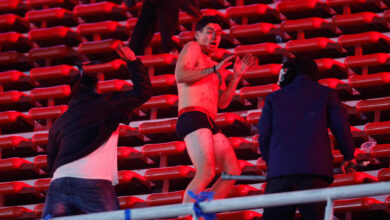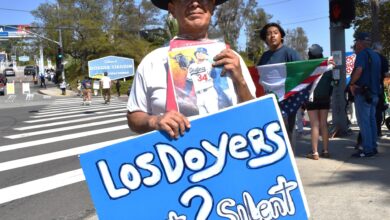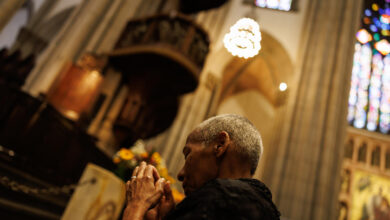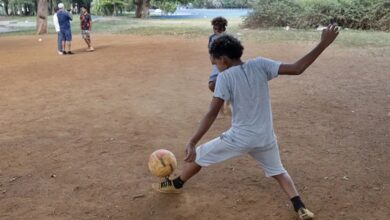Demanding Justice Beyond the Pitch in Latin American Soccer
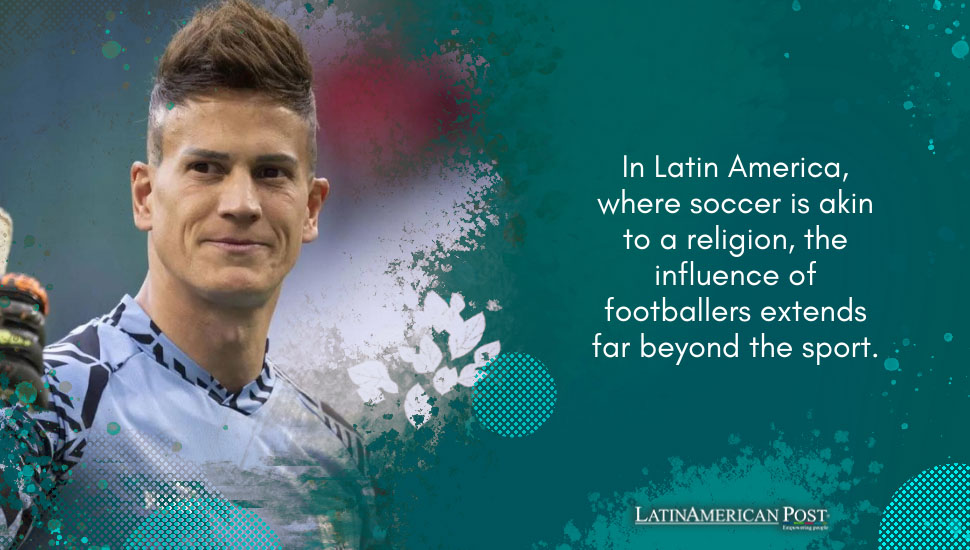
The case of Sebastián Sosa and his Vélez Sarsfield teammates, accused of sexual abuse, underscores the urgent need for justice that transcends soccer’s glory in Latin America, advocating for a system where athletes are not above the law.
Latin America’s Sports Justice Crisis
The recent scandal involving Sebastián Sosa, the Uruguayan goalkeeper of Vélez Sarsfield, along with three teammates, has ignited a crucial conversation about the intersection of sports, celebrity culture, and justice in Latin America. This incident, where Sosa and his colleagues are accused of sexual abuse, brings to the forefront the critical issue of ensuring that justice prevails, irrespective of the football pitch’s fame and fervor.
After posting a bail of 50 million pesos, Sosa was allowed to return home, albeit under strict conditions, pending the trial. Entangled in the same case, his colleagues face house arrest and other legal constraints, painting a grim picture of the off-field issues plaguing Latin American soccer. This scenario is not just a legal battle but a profound reflection of the societal norms and expectations that often shield athletes from facing the full extent of the law.
In Latin America, where soccer is akin to a religion, the influence of footballers extends far beyond the sport. The adoration and reverence they receive can sometimes blur the lines of accountability and justice. The case of Sosa and his teammates is a glaring example of how athletes can navigate the legal system in ways that might seem lenient compared to the general public’s expectations.
Regional Repercussions: Equality vs. Privilege
The regional context of this issue is significant. The narrative of football stars facing legal troubles has been a recurring theme from Argentina to Brazil, Mexico to Colombia. These incidents raise questions about the equality of the legal system and the potential for money, fame, and power to tilt the scales of justice. The situation with Vélez Sarsfield’s players is a poignant reminder of the urgent need for legal systems that do not buckle under the weight of celebrity status.
Moreover, the legal proceedings in this case highlight the broader issue of sexual abuse and gender violence in the region, which often goes underreported and inadequately addressed. The involvement of high-profile athletes in such cases brings attention to these systemic issues, offering an opportunity to advocate for change and ensure that victims receive the justice they deserve.
The actions taken by Vélez Sarsfield, including suspending the players and initiating an internal investigation, reflect a growing awareness and acknowledgment of the need to address such serious allegations responsibly. However, these steps also underscore the challenge of navigating the delicate balance between presumptive innocence and the demand for accountability, particularly in a society where football clubs wield significant influence and emotional investment.
This case should catalyze a broader discussion on the need for comprehensive reforms in how the legal system interacts with the sports industry. Policies and procedures that ensure athletes are not exempt from the law’s reach and that the judicial process is transparent, fair, and impartial, regardless of the individuals involved, are clearly necessary.
Reflections and Regional Realities
The connection between this case and broader regional trends is unmistakable. Latin America, with its rich football history and passionate fan base, must confront the reality that the sport’s heroes can also be flawed individuals capable of wrongdoing. The legal system’s response to such cases can reinforce the perception of inequality and privilege or signal a commitment to justice and accountability.
Also read: The Perils of Protectionism: Latin America’s Closed Door
The legal saga involving Sebastián Sosa and his teammates at Vélez Sarsfield transcends the realm of sports. It is a microcosm of the more significant issues facing Latin American societies, where the interplay between fame, power, and justice continues to challenge the democratic principles of equality before the law. This case should be a wake-up call for the region to reevaluate and strengthen the mechanisms that ensure athletes, like all citizens, are subject to the same legal standards and consequences. Only through such a commitment can the beloved game of soccer genuinely reflect the values of fairness, integrity, and justice that it is supposed to embody.

